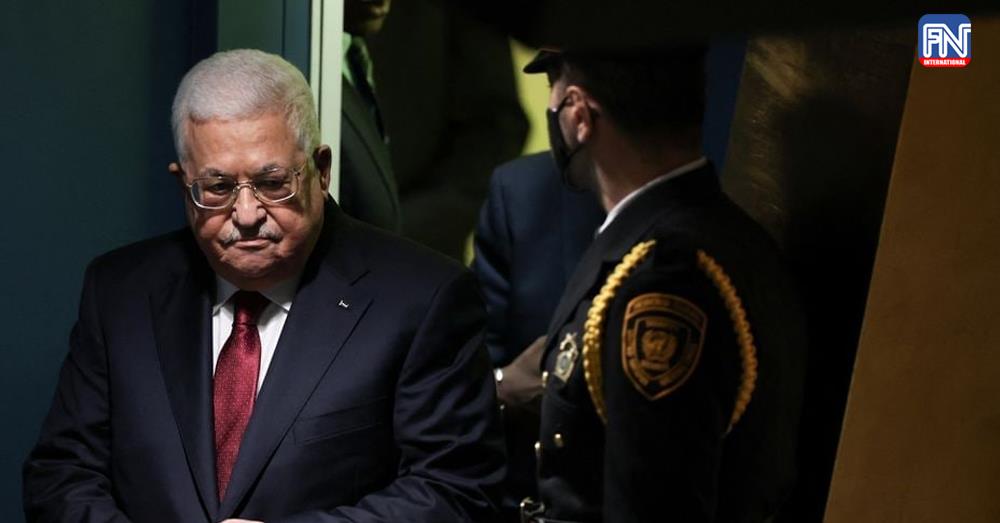NEW YORK, Sept 23 (Reuters) - Palestinian President Mahmoud Abbas said Israeli Prime Minister Yair Lapid's call for a two-state solution was a "positive development" but said the proof would be a return to negotiations.
"The true test of the credibility and seriousness of this stance is for the Israeli government to return to the negotiation table immediately," he told the U.N. General Assembly, in a speech that largely lambasted Israel's occupation of the Palestinian territories.
Israel captured East Jerusalem, the West Bank and Gaza - areas that Palestinians seek for an independent state - in the 1967 Middle East war. U.S.-sponsored Israeli-Palestinian peace talks collapsed in 2014.
Efforts to reach a two-state deal, which involves an Israeli and Palestinian state existing side by side, have long been stalled.
"Our confidence in achieving peace based on justice and international law is unfortunately waning because of Israel's occupation policies," Abbas said, calling Israel an "apartheid regime."
Palestinians and rights groups say Israel has entrenched its control of the occupied Palestinian territories through its military rule over millions of Palestinians and persistent settlement construction. Some have cast doubt over whether a two-state solution remained feasible as a result.
"Israel has not left us any land on which we can establish our independent state because of its frantic settlement expansion," Abbas said. "Where will our people live in freedom and dignity?"
Most countries deem Israel's West Bank settlements illegal. It disputes that, describing the territory as a biblical birthright and defensive bulwark.
Israel's U.N. Ambassador Gilad Erdan said in a tweet on Friday that it was the Palestinians who had rejected peace plans in the past.
Lapid's mention of a two-state formula was the first by an Israeli leader on the United Nations stage in years and echoed U.S. President Joe Biden's support in Israel in August for the long-dormant proposal.
Lapid spoke less than six weeks before a Nov. 1 election that could return to power the right-wing former Prime Minister Benjamin Netanyahu, a longstanding opponent of a Palestinian state.
Abbas said that while Western governments have supported the two-state formula, they have in effect obstructed its implementation by failing to recognise Palestine as a state and by shielding Israel from accountability.
He asked the United Nations to recognise full state membership for Palestine and lay out a plan to end Israel's occupation.
Erdan said in his tweet that Israel would make sure that the attempt to grant Palestinians full state status will fail.
In his speech, Abbas reiterated the Palestinian position that Al Jazeera journalist Shireen Abu Akleh was killed by an Israeli sniper while covering an Israeli raid in the West Bank in May. He demanded that the United States seek justice for Abu Akleh, who is a dual Palestinian-American national.
An Israeli investigation into Abu Akleh's killing concluded that she was likely to have been shot by an Israeli soldier but was not deliberately targeted.
